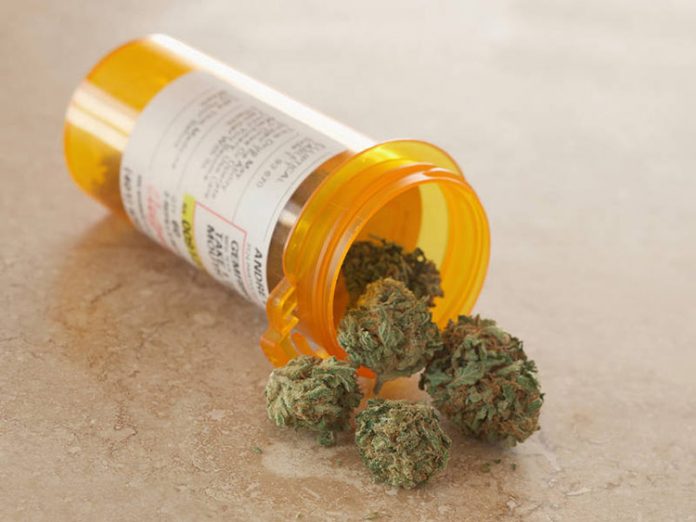More patients could be eligible for medical marijuana treatments after a Louisiana Senate committee advanced two medical marijuana bills Wednesday.
House Bill 627 by Rep. Rodney Lyons, D-Harvey, would make medical marijuana available to certain individuals with autism. House Bill 579 by Rep. Ted James, D-Baton Rouge, would add glaucoma, Parkinson’s disease, intractable pain, post traumatic stress disorder and severe muscle spasms to the 10 conditions currently approved for medical marijuana prescriptions.
Lyons’ bill would be narrowly tailored to address more severe behaviors on the autism spectrum, specifically those that “affect quality of life and the lives of family members,” he said. Those actions include self-injuring behavior, physical aggression, dangerous self-stimulation and inability to communicate to the point of endangerment.
Monica Stampley, of Bossier City, is a medical marijuana advocate and mother to 15-year-old Judah, who suffers from severe anxiety and physical aggression due to autism. Stampley said her 6-foot-2, nearly 300 pound son struggles with large groups, bright lights and new environments, and is prone to violent outbursts.
Her son has suffered three run-ins with law enforcement as a result of his outbursts in public. Stampley said his episodes can be terrifying, but they’ve attempted several treatments and there are few reliable options available.
“I’m a battered woman,” Stampley said. “There isn’t even a name for it. It’s under domestic abuse, but there’s not even a name for child on parent violence. That’s what it is. I can’t go to a shelter, I can’t run away from it, because it’s my child. It’s my son, my firstborn son, my child that I love so much.”
Stampley and other advocates said they believe medical marijuana could be a viable medical alternative for their children and others with autism spectrum disorders.
Katelyn Castleberry, spokesperson for Louisiana Mothers Advocating Medical Marijuana for Autism, said there are ongoing or newly announced studies on medical marijuana and autism in California and Pennsylvania, among others.
“This may be the beginning of the process but this is not the great unknown, and we are not pioneers here,” Castleberry said. “We are walking a trodden path.”
While new studies are ongoing, there’s little scientific understanding of the effects of medical marijuana on autism and the other proposed medical conditions. Marijuana is a schedule I illegal drug in the United States, and federal restrictions have limited medical research on the drug and its side effects.
Dr. John Vanchiere, president of the Louisiana chapter of the American Academy of Pediatrics, said there’s little clinical data to support marijuana’s safety or efficacy in treating autism.
Opponents to James’ bill echoed similar points.
Stephanie Haynes with the Greater New Orleans Drug Demand Reduction Coalition said expanding medical marijuana access in Louisiana is “too risky and too fast” and lawmakers need to “balance science with compassion.” Haynes said the compassionate thing for families is to provide them with tested, regulated medications that are proven to work.
Vanchiere said despite the lack of clinical results, there are compelling anecdotes from individuals and families who claim medical marijuana has assisted in various disease treatments.
Expanding the list of applicable diseases and conditions under the state’s medical marijuana program would allow research partners to explore these claims, said John Davis, president of GB Sciences of Louisiana. GB Sciences is LSU’s production partner for their medical marijuana program.
LSU and Southern University hold the exclusive contracts for medical marijuana production in Louisiana, and the two universities expect their first rounds of medical marijuana products could be ready by September and February, respectively.
Whether proven results exist or not, giving families the chance at better health outcomes and improved quality of life is worth a shot, Lyons said.
“They’re not looking for a miracle. And this is probably one of the last places I would come for a miracle, but they’re coming for help. They’re coming here because they have a need,” Lyons said. “The only real gateway here is the opportunity for folks to get reprieve and the opportunity to live quality lives.”
Lyons’ HB627 passed the committee in a 4-2 vote, while James’ HB579 advanced in a 4-1 vote. Both measures will move to the Senate for debate.














